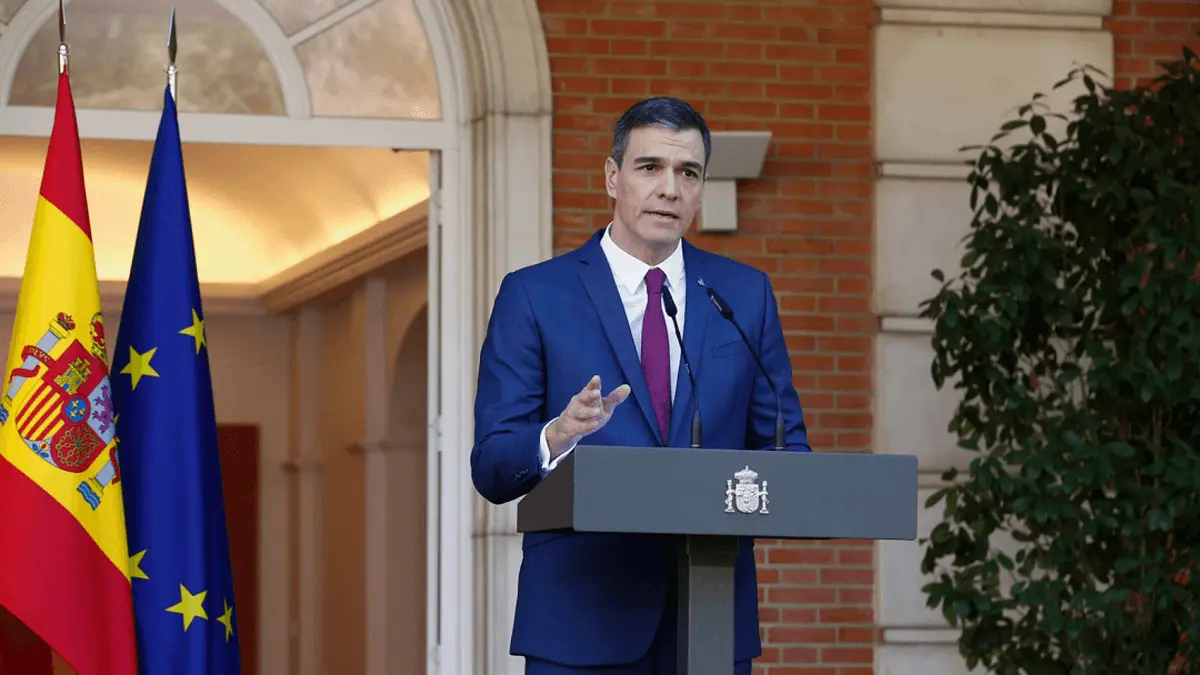The French Left and the Reality of the Spanish Model

The French Left's program includes measures such as progressive income tax, the introduction of a generalized social contribution, and the gradual reinstatement of the solidarity wealth tax. Additionally, the Left coalition intends to raise the minimum wage, revert the retirement age increase, achieve ecological transformation, and enhance business competitiveness by improving production factors and overcoming obstacles (“La logique économique du programme de la Nouvelle Front Populaire et comment le financer”, Revue Économie et Politique, une revue marxiste, 18 juin 2024).
The French Left considers the Spanish model as the one to follow in this context because Spain, under Pedro Sánchez's leadership, has achieved what other European countries have not in terms of growth, job creation, and maintaining macroeconomic balance. It is true that Spain's IBEX index has seen its highest increase since 2017, and the housing sector has experienced a remarkable recovery (over 4.2% in 2024). Spain has reached one of the highest job creation rates in Europe, while domestic goods demand has increased by around 2% at the beginning of 2024 ("Pedro Singari: 'The Spanish Economy is Thriving, with Tourism, Domestic Spending, and Investment Expected to Continue Driving Growth this Year,' Euronews, March 29, 2024."). On the other hand, tourism continues to grow as a leading sector in wealth and job creation.
It is also true that the Sánchez government's introduction of a cap on precarious work, the increase in the minimum wage, and the hike in taxes on large companies and high incomes have contributed to Spain's economy achieving the highest growth rate in the eurozone, with government forecasts set at 2.4% in 2024, compared to 1% in other European countries ("Philippe Robert, « La réalité du modèle économique espagnol », Le Point, 1er août 2024.").
However, it is not as simple as the French Left imagines. First, the reforms implemented by Mariano Rajoy's government in Spain between 2011 and 2018, at the height of the financial and economic crisis with an unemployment rate of 25%, included labor market reform, austerity policies to control macroeconomic indicators, the restructuring of the banking system by the state through the nationalization of failing banks, the increase in the retirement age, etc. These measures paved the way for Spain to receive European support and created a favorable business climate for investment.
The reforms undertaken by Pedro Sánchez after 2018, particularly the reduction of labor market vulnerability, the increase in taxes on high incomes to finance social initiatives, support for the tourism sector after the Covid-19 pandemic, and the continuous control of macroeconomic balances, all have facilitated the process of obtaining European support and have spurred internal and external demand on Spanish goods. These factors explain why the Spanish economy achieved significant successes in 2023 that should continue until 2025. All of this, while Spain boasts a solid and efficient social protection system (Philippe Robert) that significantly contributes to the resilience of the economy.
This is not the case in France. First, the pension reform has been politicized to the point where everyone, from the Left to the Far Right, demands a rollback of the retirement age increase without a real impact study on public finances. This is while the budget deficit still exceeds 5%, despite warnings from Brussels, while the debt has skyrocketed to 112% of GDP, and while unemployment remains high despite the enormous labor shortage in certain sectors. The slowdown in growth, the existence of a tight labor market, and the continuous decline in production capacity and competitiveness have only worsened the situation (Le FMI, “France : Conclusions des services du FMI à l’issue de leur mission de 2024 au titre de l’article IV », 23 Mai 2024).
All this requires bold structural reforms that require strong political courage to be undertaken. Raising the minimum wage, taxing high salaries, and stabilizing prices may not yield the same results as in Spain, which raised the retirement age to 67, reduced the budget deficit to about 3%, and relatively reduced public debt. The Spanish government also reformed the labor market, which helped lower the unemployment rate to around 11%, whereas it was very high a few years ago, and put together policies that improved the doing businesses environment which led to the increase of demand for Spanish products.
Certainly, Spain faces significant challenges: chronic unemployment, persistent inflation, excessive dependence on tourism, but it seems to be on the path to regular growth in the coming years thanks to the structural reforms undertaken by successive governments, which Sánchez has capitalized on to introduce the appropriate policies, particularly in the labor market, taxation, and demand support. This is not possible in France without reforms that may be painful and require an internal political consensus that is currently lacking: reducing the budget deficit and debt, genuine pension fund reform, effective labor market reform, and social protection system reform.
In conclusion, while the Spanish model presents inspiring successes, France must recognize its own economic and political realities. The reforms proposed by the Nouveau Front Populaire require thorough examination and adaptation to French specificities. Only courageous commitment and political consensus will allow France to achieve the necessary transformations to ensure sustainable and equitable growth.



